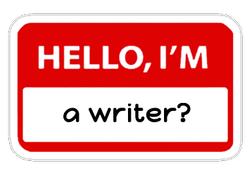The more you write, the better you get, and the more you learn about what sells. Publishing a blog as a casual writer may bring you followers, but are they the same people who would pay to read you? You could offer a few pay-to-read articles on your otherwise free blog just to test the waters on that. It takes much more effort to recruit new customers than to keep existing ones. If you don't get any bites, it is time to find out whether it is your writing, your topics or the audience you're already performing in front of that is posing the problem.
While you're practising and getting better, it is wise to find yourself an editor or proofreader. EVERYBODY makes mistakes, and not always the easy ones you typically think of when you bring to mind sloppy writing. I can remember countless times putting something before the public eye only to go back later to read it and see glaring errors that slipped by eyes that had already over-read the article.
Finally, getting into the habit of writing as much as possible will allow you to find your groove. Some people write best and most productively in the morning. Others burn the midnight oil. You can force a routine, but often, you'll find yourself naturally if you give yourself a lot of opportunity and flexibility at the beginning. Writing professionally is not the same as writing solely for fun. You want to keep the element of fun there, but output needs to be considerably better and greater.
If you're transitioning, as I am, I know what you're going through ;)







 Writing Posthumouslyon 05/08/2013
Writing Posthumouslyon 05/08/2013
 God or The Queen: Your Choiceon 05/04/2013
God or The Queen: Your Choiceon 05/04/2013
 Broken Ankle Boogieon 05/02/2013
Broken Ankle Boogieon 05/02/2013
 Toulouse-Lautrec: Approaching Humanity with Different Brush Strokeson 05/01/2013
Toulouse-Lautrec: Approaching Humanity with Different Brush Strokeson 05/01/2013



Comments
Thank you! I couldn't agree more. Writing is lonely work. I think it could be helpful to have a few interesting people to occasionally get together with and bounce ideas off of or just stimulate the creative juices. I don't have that in China, unfortunately - probably why I feel my brain is slowly turning to mush.
Come to think of it, you've asked a very interesting question. I don't actually know any writers in China. Everyone uses social media, but I don't know anyone doing serious writing work. But I also tend to work in colleges and universities devoted to science and technology, rather than the arts...
There are Western coffee shops in large cities here, but the average person doesn't go to them because they are too expensive (a cup of coffee might cost 2-3 times what a poor person would make in an hour). I'm not sure where creative types actually congregate to either work or chat. I need to explore this more, I think!
Good luck with your plans! I'm thinking now writing can be rather lonely, too, if you are serious about it and putting in the hours. Which is why I keep reading that lots of writers spend time in cafes. At least in the US. Same thing in China? Was just talking about this with friends today.
Long delay and absence from Wizzley. Many apologies.
I completely agree with you regarding the balance between pressure and passion. You need a little of both to make a small living. Too much of either threatens the balance. I know a few very driven people who still maintain that they love what they do.
Myself, I'm in southern China. I teach graduate students at a university. Writing on the side. Would love to get out of the former, but continue with the latter :)
Good post. The problem with turning a passion into a profession is what you say: you're pushed to be better and produced more. And sometimes that creates too much of a pressure. Too much of a good thing, that can sap you in the end. So I have my doubts. Where are you now with work and writing, and how is it going?
Thank you very kindly, teddletonmr :) For the welcome, the compliment, and for sharing in the experience!
thewriteway,
First things first, please allow me to welcome you to the wizzley community. Secondly, I enjoy reading your article full of well explained in detail insights. So much so, I feel, as though, I should pay you something for the valuable, seemingly heart-felt advice. How about a well-deserved complement? From an ole up and coming writer, to another, well done, the what, and why points are spot on.
Absolutely. I think one of the most common things I've heard said by those in the know regarding web site and blog creation is "Make it about great content."
I agree with Catana, you should blog for the love of it. So many think you can and should simply toss up and blog in support of a body of work but if shallow it has a counter reaction. Great article.
I hear you on the social networking. I think Twitter was created to confuse people like me... Blogging is my favourite form - the relationships and insights I've gained from blogging are pretty amazing.
I think it's an exciting time to live in that in between realm of serious writing without aiming for large cash rewards. There are more outlets than ever for that.
Congrats on carving out your own unique writing identity!